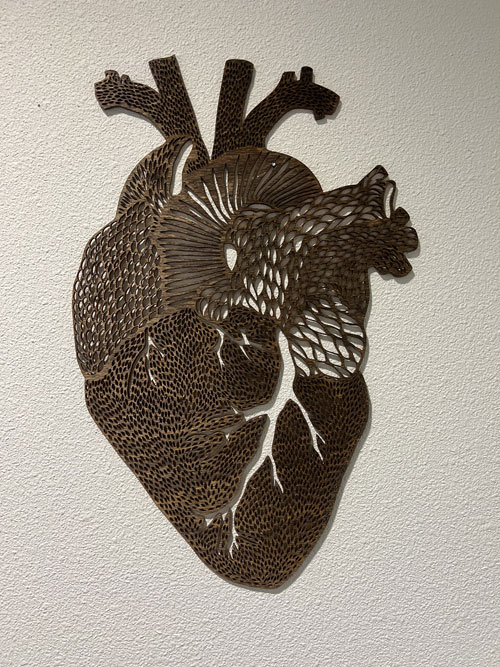Pediatric Cardiology
Our goal is to provide the best possible care and outcomes for our patients.
Common Reasons to be Referred to us
These are some of the more common symptoms or findings that lead to pediatric cardiology referral, and do not necessarily mean there is a heart problem.
HEART MURMURS
A heart murmur is an extra sound that your doctor can hear when listening to the heart. Although being told that your child has a heart murmur can be scary, murmurs can also be normal. Murmurs can also be due to a heart defect like a hole in the heart or a valve abnormality. Listening carefully to the heart, performing an EKG and in some cases an echocardiogram (an ultrasound of the heart), will help tell the difference. If a murmur is found to be due to a structural heart problem, the pediatric cardiologist can determine if any treatment is needed.
HEART RHYTHM ABNORMALITIES
High Blood Pressure
CONGENITAL HEART DEFECTS
CHEST PAIN
Cardiac Clearance for Sports
SCREENING FOR GENETIC HEART CONDITIONS
FAINTING
Patient Resources
Please scroll down for more information on common pediatric cardiology topics, links to helpful websites, and information about specialized pediatric cardiology clinics.
Patient Education
Feel free to download any of these handouts.
- Aspirin Instructions
- Bicuspid Aortic Valve
- Chest Pain in Pediatrics
- Cholesterol: Dietary Reccommendations
- Compounded Drugs- patient instructions
- Dysautonomia/POTS (Treatment)
- Energy Drinks and the Heart
- Familial Hypercholesterolemia
- Hypertension
- Marijuana and the Heart
- Neuropsychological Testing in Congenital Heart Disease
- Palpitations
- POTS Facts
- POTS in Spanish
- Vaping and the Heart
- Vasovagal Syncope
- Vasovagal Syncope in Spanish
- HIPAA Notice
Offsite Links
- Adult Congenital Heart Association – A resource for adults with congenital heart disease
- American Heart Association – Information about congenital heart disease
- Camp Del Corazon – Summer camp in California for children with congenital heart disease
- Cove Point Foundation – Information about heart defects, heart surgery, adult congenital heart disease, and nutrition topics
- Dysautonomia International – Resources for patients with dysautonomia, including orthostatic intolerance and POTS (postural orthostatic tachycardia syndrome)
- Healthy Children – Nutrition (including recipes) and fitness tips for heart healthy living
- Healthy Children Heart – articles on heart-related health issues
- Kawasaki Disease Foundation– information about Kawasaki disease
- Marfan – Supports patients and families with aortic and vascular disorders (e.g. Marfan syndrome, Loeys-Dietz, and vascular EDS)
- Merry Heart Children’s Camp – A summer camp for children in Oregon, Washington, and Idaho who have heart conditions
- National Coronary Anomalies Foundation– support for patients with anomalous coronary arteries, and their families
- SADS (Sudden Arrhythmia Death Syndromes) Foundation – Supports families with hereditary heart rhythm disorders
- Sisters By Heart – support for families affected by single ventricle defects
SPECIALIZED PEDIATRIC CARDIOLOGY CLINICS
The Children’s Heart Center of Central Oregon offers specialized clinics for fetal cardiology and preventive cardiology (including prediabetes).
We collaborate closely with pediatric electrophysiology specialists in Portland to provide the best care for our patients with arrhythmias and pacemakers.
We also work closely with adult congenital heart disease specialists in Portland as our patients with congenital heart disease transition to adulthood.
Neurodevelopmental follow-up is an important component of ongoing care for children with congenital heart disease. This service is provided by the PEDAL clinic at St. Charles Medical Center.
WHAT IF MY CHILD NEEDS A CARDIAC INTERVENTION?
Children who need cardiac surgery or a cardiac cath will travel outside of Central Oregon for their interventional procedure. We will help coordinate that care, depending on where our patient will be best served. Our team will care for our patients before and after their procedure, so families don’t need to travel outside the area for follow-up care. The Children’s Heart Fund is available to provide additional financial support.


